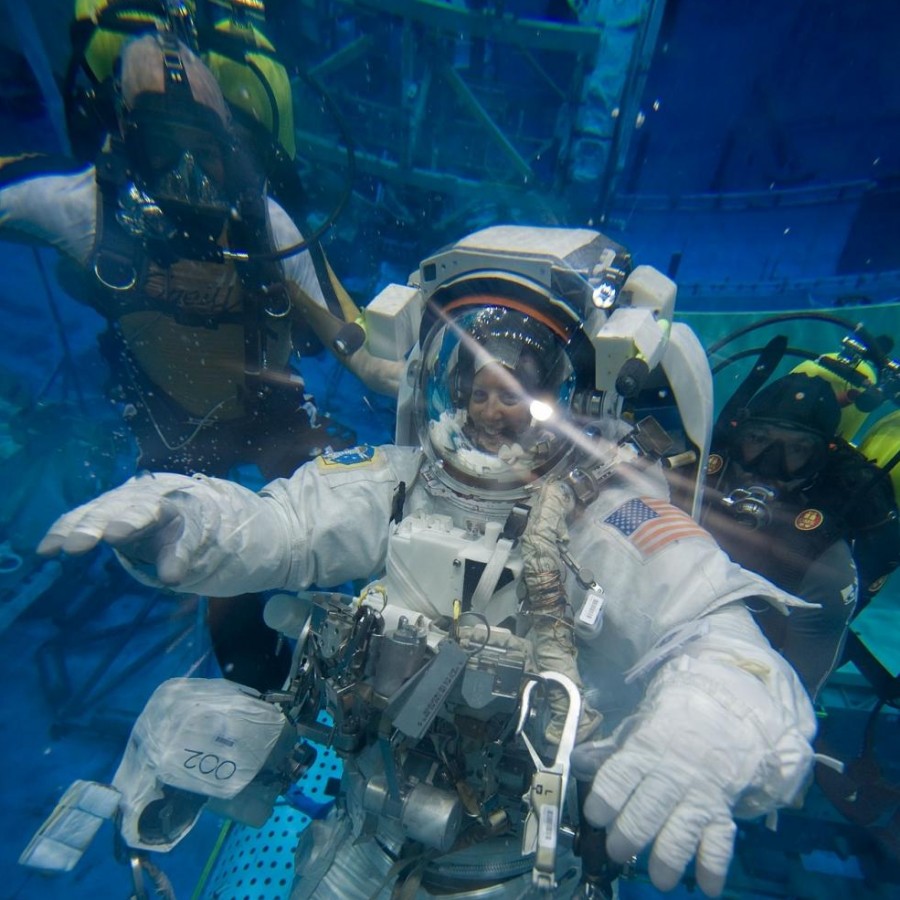While the sixties were a time best known for its free-spirited hippies and the Vietnam War, they were also known for the United States’ moon landing. Recently, NASA announced plans of landing on the moon in 2024.
In lieu of this information, it has led some to wonder if space exploration is still worth the time and money it takes to send astronauts into space. Many wonder what there is left to discover about the universe surrounding the world.
There is no simple way to prepare astronauts for the intensities of space travel. According to a Fox News article, NASA is using a massive water tank to prepare astronauts for space. “The water environment allows them to move around, set up habitats, collect samples and deploy experiments, just as they would on the Moon,” said NASA.
This Neutral Buoyancy Lab will also help to simulate what it would be like to walk on the moon. Not only does NASA’s Artemis program intend to keep human presence stable on the moon, “[it] will also make history by landing the first woman on the Moon.”
While NASA’s knowledge of space is quite extensive, so is AP Physics teacher Ian Spangenberg’s. He is a firm believer of the importance of space travel. “We, as a society, have an interest in understanding why matter and energy operate in the way that they do. Space exploration helps us to answer these big questions,” he said.
Spangenberg is very optimistic about the multitude of benefits the moon could provide for the world, such as provide a moon base equipped with efficient solar panels and an abundance of gas materials. Afterall, “The pursuit of achieving challenging things spawns technologies and conceptual advancements that we can’t even dream of now,” said Spangenberg.
Space exploration costs billions of dollars, but the information gained from these exertions makes the price worthwhile. The United States’ expedition into space has brought smarter technology, including GPS, accurate weather predictions, ultraviolet filters, and the material used to make athletic shoes soles.
As impossible as it may seem, if anything should happen to the Earth, the solar system is the next best choice of habitation. With the evidence gained from NASA’s Mars Exploration Rover, the possibility of life on Mars is not unattainable. “[Rover] Spirit found rocks ten times richer in key chemicals than any other Martian rocks studied before. These rocks formed when Mars was warm and wet, [suggesting that] this warmer, watery environment could have supported life.”
This evidence helps to justify the need for the USA’s presence in the world of space exploration. Venturing out to the moon again could provide the world with more information about space and could lead to other technological advancements.
Although the purpose of traveling to the moon has not been clarified, NASA is hopeful for another few decades of astronomical success.









